Environmental and Economic Justice (103 found)
Save The Namtu River
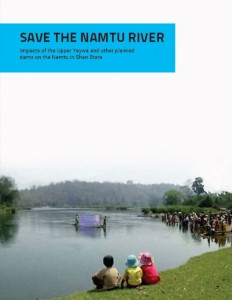 In January 2016, Burma’s state media reported that Naypyidaw was proceeding with four new hydropower dams on the Namtu (Myitnge or Dokhtawaddy) River, three of which are in conflict areas of Shan State […]
In January 2016, Burma’s state media reported that Naypyidaw was proceeding with four new hydropower dams on the Namtu (Myitnge or Dokhtawaddy) River, three of which are in conflict areas of Shan State […]
Opium Production Spreads to Chin State
Free Burma Rangers (FBR) recently finished a mission to document opium production in Chin State, Burma. Chin State is not widely known in Burma for its production of opium […]
• • •We Will Manage Our Own Natural Resources: Karen Indigenous People in Kamoethway Demonstrate the Importance of Local Solutions and Community–Driven Conservation
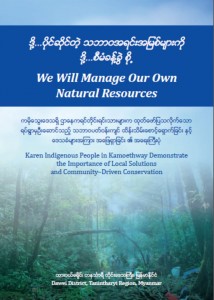 This piece of community initiated action research reveals a number of lessons we can learn. The authors try to reflect the challenges of and opportunities for community based natural resources management in a seemingly forgotten Karen controlled area of southern Myanmar […]
This piece of community initiated action research reveals a number of lessons we can learn. The authors try to reflect the challenges of and opportunities for community based natural resources management in a seemingly forgotten Karen controlled area of southern Myanmar […]
Report of the Special Rapporteur on the situation of human rights in Myanmar
In the present report, submitted to the Human Rights Council pursuant to its resolution 28/23, the Special Rapporteur on the situation of human rights in Myanmar, Yanghee Lee, examines the developments in Myanmar since her reports to the Council, in March 2015 (A/HRC/28/72) and to the General Assembly, in October 2015 (A/70/412) […]
• • •Special Report: FAO/WFP Crop and Food Security Assessment Mission to Myanmar
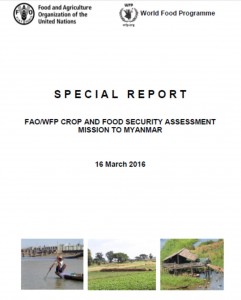 An FAO/WFP Crop and Food Security Assessment Mission (CFSAM) visited Myanmar from 24 November to 10 December 2015 at the invitation of the Myanmar’s Ministry of Agriculture and Irrigation (MoAI) to forecast the 2015 cereal production (2015 main monsoon and ongoing 2015 secondary summer season) and to evaluate the prospective food security and nutrition situation […]
An FAO/WFP Crop and Food Security Assessment Mission (CFSAM) visited Myanmar from 24 November to 10 December 2015 at the invitation of the Myanmar’s Ministry of Agriculture and Irrigation (MoAI) to forecast the 2015 cereal production (2015 main monsoon and ongoing 2015 secondary summer season) and to evaluate the prospective food security and nutrition situation […]
Myanmar: Annual Report Country Entry 2016
Authorities failed to address rising religious intolerance and incitement to discrimination and violence against Muslims, allowing hardline Buddhist nationalist groups to grow in power and influence ahead of the November general elections […]
• • •Sharing the Wealth: A Roadmap for Distributing Myanmar’s Natural Resource Revenues
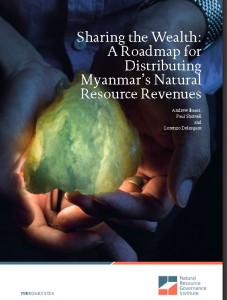 Oil, natural gas and mineral revenues are generated in nearly every state and region in Myanmar, with the most important onshore interests lying in Bago, Kachin, Magway, Mandalay, Sagaing, Shan and Tanintharyi. In these areas and others, extractive activities have significantly impacted livelihoods and the local environment […]
Oil, natural gas and mineral revenues are generated in nearly every state and region in Myanmar, with the most important onshore interests lying in Bago, Kachin, Magway, Mandalay, Sagaing, Shan and Tanintharyi. In these areas and others, extractive activities have significantly impacted livelihoods and the local environment […]
Land Confiscations and Collective Action in Myanmar’s Dawei Special Economic Zone Area: Implications for Rural Democratization
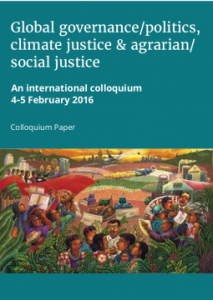 The recent political and economic liberalization in Burma/Myanmar, while indicative of some positive steps toward democratisation, has increased foreign and domestic investments and geared the economy toward industrialisation and large-scale agriculture. Land governance procedures and implementation tend to favour the more powerful and well-connected, with little protection mechanism for the majority smallholding farmers in the country.
The recent political and economic liberalization in Burma/Myanmar, while indicative of some positive steps toward democratisation, has increased foreign and domestic investments and geared the economy toward industrialisation and large-scale agriculture. Land governance procedures and implementation tend to favour the more powerful and well-connected, with little protection mechanism for the majority smallholding farmers in the country.
Myanmar Extractive Industries Transparency Initiative (MEITI) Report for the period April 2013- March 2014 Oil, Gas and Mining Sectors
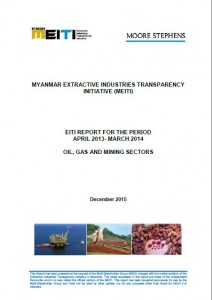 The purpose of this Report is to reconcile the data provided by companies operating in the extractive sector (hereafter referred to as “Companies”) with the data provided by relevant Government Ministries and Bodies (hereinafter referred to as “Government Bodies”) […]
The purpose of this Report is to reconcile the data provided by companies operating in the extractive sector (hereafter referred to as “Companies”) with the data provided by relevant Government Ministries and Bodies (hereinafter referred to as “Government Bodies”) […]
The Meaning of Land in Myanmar
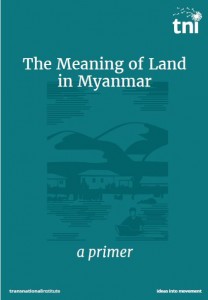 “Land is like our vein; it is vital for our living. After our land was confiscated, we don’t know what to do for our livelihood,” says a farmer from Kachin State in Myanmar […]
“Land is like our vein; it is vital for our living. After our land was confiscated, we don’t know what to do for our livelihood,” says a farmer from Kachin State in Myanmar […]

 All posts
All posts